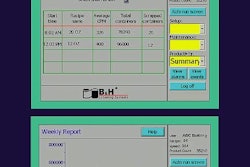The regulations stated that COOL is not a food safety law, but a consumer education law.
COOL opponents continued to press Congress for relief before making the investments needed to comply with the law. The House included in its USDA appropriations bill for FY 2004 language that would deny funding for implementation of the COOL program. But the Senate was unlikely to go along, given the strong support for COOL by minority leader Sen. Tom Daschle (D-SD). In early November, the Senate passed a sense of the Senate resolution to go forward with COOL. The 18 members of the Food Industry Trade Coalition sent a letter to senators alerting them to the unintended consequences of the COOL law and urging them to repeal the law in favor of voluntary labeling.
There were signs that producers who had initially pressed for COOL were rethinking their positions in light of the costs involved. An October 2003 survey sponsored by the Food Marketing Institute found that 62% of the nation’s meat, vegetable, and fruit producers opposes the COOL law in its current form and wants Congress to change or repeal it before it goes into effect.
























